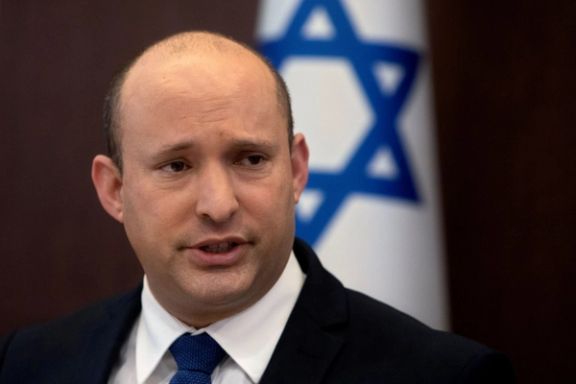Israel Says Ready To Confront Iran Regardless Of Any Nuclear Deal

Israel’s Naftali Bennett signaled readiness on Tuesday to step up confrontation with Iran and said Israel would not be bound by any new Iranian nuclear deal.

Israel’s Naftali Bennett signaled readiness on Tuesday to step up confrontation with Iran and said Israel would not be bound by any new Iranian nuclear deal.
Bennett’s tough statements come after the Biden Administration in recent weeks has kept in close touch with Israel and its Arab neighbors in the region trying to reduce concerns over its policy of seeking a diplomatic agreement with Iran.
Indirect negotiations will begin on November 29 about reviving the 2015 deal, which former US President Donald Trump withdrew from, deeming it insufficient to shut down projects with bomb-making potential - a view shared by the Israelis and Saudi Arabia.
Iran, which denies seeking nuclear arms, has since the US walkout breached the deal with expanded uranium enrichment, stockpiling more than 200 kilograms of 20-percent and 60-percent enriched uranium. This has brought Iran very close to obtaining the 90-percent enriched fissile material for making a bomb.
Bennett, who took power in June, described Iran in a speech as being at "the most advanced stage of its nuclear program".
While his government has previously said it would be open to a new nuclear deal with tougher restrictions on Iran, Bennett reasserted Israel's autonomy to take action against its arch-foe.
“The mistake we made after the first nuclear deal in 2015 will not repeat itself,” said Bennett. “With all the noise beforehand, from the moment the deal was signed, it affected us like a sleeping pill. Israel simply fell asleep on duty. We occupied ourselves with other things.”
“We will learn from this mistake,” he said. “We will maintain our freedom of action.”
"We face complicated times. It is possible that there will be disputes with the best of our friends," he told a televised conference hosted by Reichman University.
"In any event, even if there is a return to a deal, Israel is of course not a party to the deal and Israel is not obligated by the deal."
A long New York Times piece Sunday reportedconcern among United States intelligence officials over past and possible future Israeli attacks on Iran’s nuclear program. Since July 2020, several major sabotage attacks, widely attributed to Israel, have hit Iran’s sensitive nuclear facilities.
Bennett voiced frustration with what he described as Israel's smaller-scale clashes with Iranian guerrilla allies.
"The Iranians have encircled the State of Israel with missiles while they sit safely in Tehran," he said. "To chase the terrorist du jour sent by the (Iranian covert) Qods Force does not pay off anymore. We must go for the dispatcher."
Stopping short of explicitly threatening war, Bennett said cyber-technologies and what he deemed Israel's advantages as a democracy and international support could be brought to bear.
"Iran is much more vulnerable than is commonly thought," he said.
With reporting by Reuters, Times of Israel